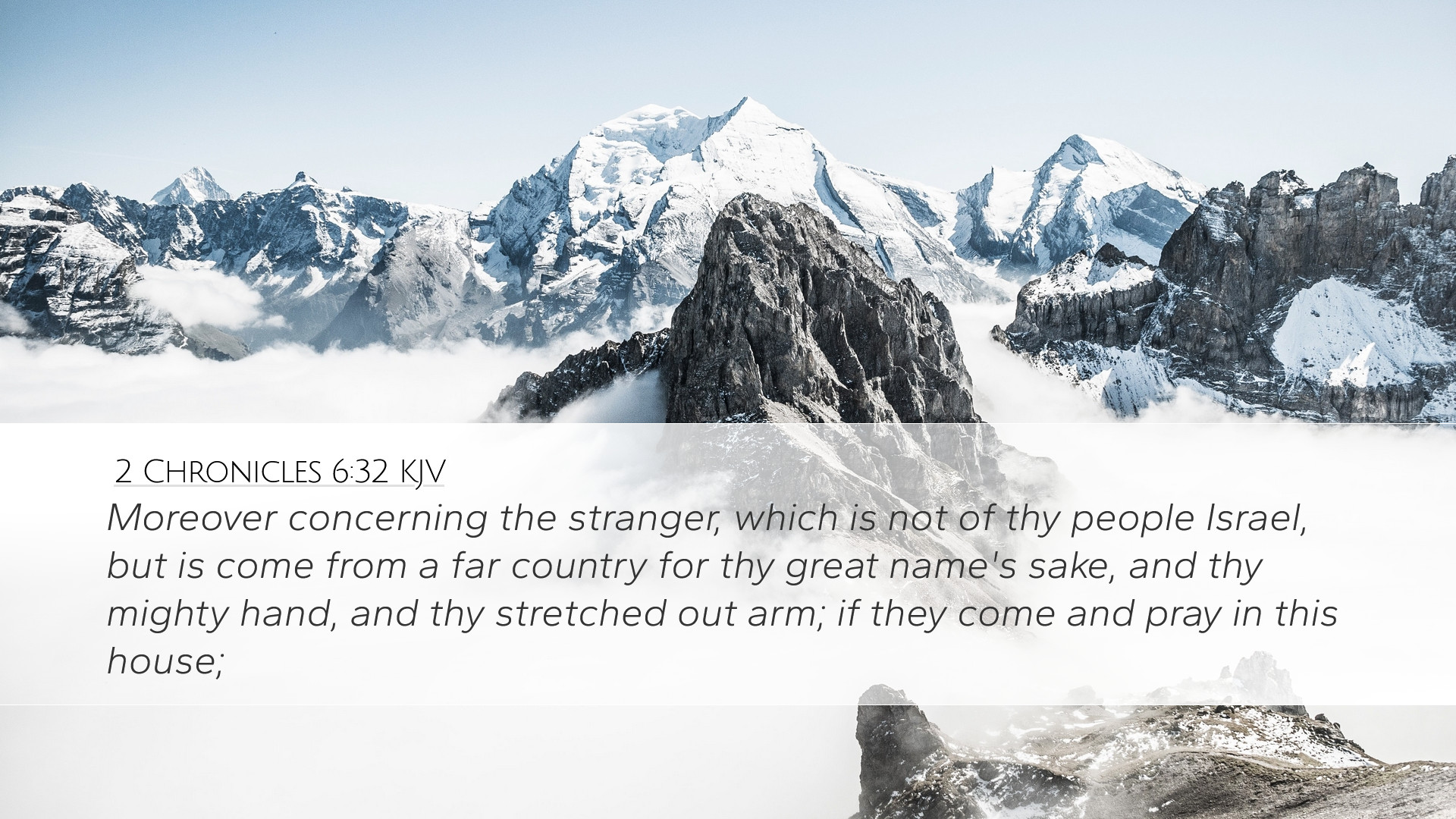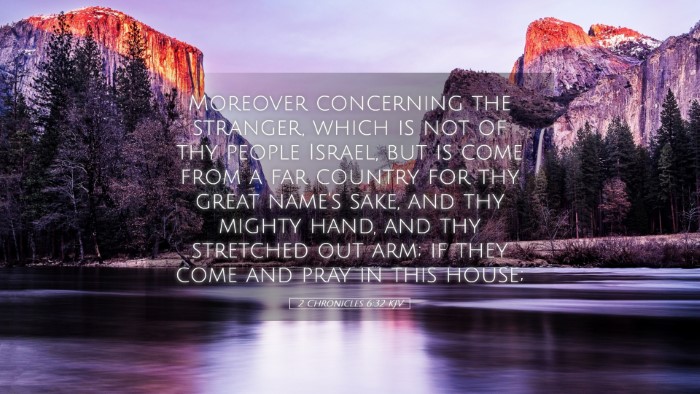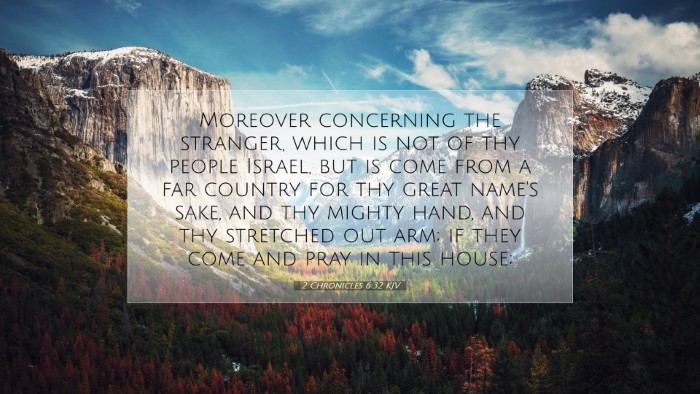Commentary on 2 Chronicles 6:32
Bible Verse: "Moreover concerning the stranger, which is not of thy people Israel, but is come from a far country for thy great name's sake, and thy mighty hand, and thy stretched out arm; if they come and pray in this house."
Introduction
2 Chronicles 6:32 forms part of Solomon's dedicatory prayer for the temple. This verse encapsulates a profound truth about God's openness to the nations beyond Israel's borders and His willingness to receive those who seek Him.
The insights provided by esteemed commentators such as Matthew Henry, Albert Barnes, and Adam Clarke shed light on this passage, emphasizing God's universal grace and the importance of prayer.
Exposition of the Verse
In this verse, Solomon extends the significance of the temple to "the stranger" – the non-Israelite. This indicates a moving outward of God's blessing beyond Israel, showing a vision of inclusivity in worship.
This mirrors the heart of the Gospel and the redemptive purpose of God for all nations. Solomon portrays God's fame, power, and providence as the drawing factors for the nations.
1. The Universal Invitation
Matthew Henry highlights how Solomon acknowledges the stranger, emphasizing God's house as a place welcoming all who seek Him.
This not only incorporates those physically distant from Israel but also those spiritually seeking truth, a call strongly echoed in the New Testament.
2. Purpose of God's Actions
Albert Barnes elaborates on the phrase "for thy great name's sake." He underscores that God's intentions are rooted in His reputation and honor.
He acts not only for the people of Israel but also for those who come seeking His grace from afar. This reflects God's desire that the nations should seek Him, a theme consistent throughout Scripture.
3. The Importance of Prayer
The mention of prayer signifies the action of seeking the Lord. Adam Clarke points out that prayer is a vital component of approaching God, regardless of one’s background.
Solomon’s prayer reinforces the communal aspect of seeking God which calls individuals, irrespective of heritage, to offer supplications in God’s temple.
Theological Implications
The verse suggests a theology of inclusivity and divine mercy. It underlines that the God of Israel is not limited by geographical or ethnic boundaries.
The temple represents a meeting place not just for Israel but for anyone who would acknowledge the true God and call upon His name.
1. God's Design for All Peoples
The passage reveals God’s desire for relationship not limited by race or nationality. Henry notes God’s invitation extends beyond the covenant community of Israel.
This provision foreshadows the later New Testament teaching of the Great Commission, where Jesus commands His disciples to make disciples of all nations (Matthew 28:19).
2. The Role of the Temple
The temple symbolizes God's presence among His people and serves as a beacon for those outside the covenant community.
Barnes points out that the temple is the tangible manifestation of God's presence, inviting all who wish to seek Him for forgiveness and guidance.
3. Prayer as a Means of Access
Clarke emphasizes the centrality of prayer in access to God. The temple serves as a literal and spiritual access point where prayers arise for all, reflecting God's accessibility.
Prayer is not confined to ethnic boundaries but is open for all who wish to seek divine help.
Practical Applications
For pastors, scholars, and students, this verse offers significant insights into the nature of God and prayer:
- 1. Embrace Diversity: Pastors should advocate for inclusivity in their congregations, drawing in individuals from different backgrounds seeking God.
- 2. Teach the Importance of Prayer: Emphasizing the transformative power of prayer can encourage a habit of seeking God’s presence among believers and non-believers alike.
- 3. Expand Vision Beyond Borders: The call to reach out extends beyond local communities to a global mission, reflecting God’s concern for every nation.
Conclusion
2 Chronicles 6:32 serves as a reminder of the all-encompassing reach of God's grace. It invites all, regardless of background, to seek Him in earnest prayer.
The insights drawn from Matthew Henry, Albert Barnes, and Adam Clarke provide foundational understanding for pastors, students, and theologians as they navigate the rich implications of this passage.
The temple becomes more than a building; it is a symbol of God’s heart to welcome every seeker into fellowship with Him.


